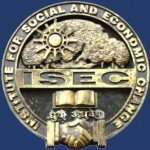26th June 2013 Bangalore, India
Ageing at ISEC
 About 40 years ago, the famous Indian Social Scientist Prof. V K R V Rao said “I now want to utilise some of my time in building up a third institution in the field of social sciences, in addition to the two which I have helped to build, namely, the Delhi School of Economics and the Institute of Economic Growth. As I have built these two institutions in the North, I want to establish the third one in the South. Bangalore is an ideal place for its location.” Prof. Rao’s vision and efforts led to Bangalore getting the Institute of Social and Economic Change (ISEC). The institute campus is serene and lovely with greenery all around it and provides an excellent setting to do research.
About 40 years ago, the famous Indian Social Scientist Prof. V K R V Rao said “I now want to utilise some of my time in building up a third institution in the field of social sciences, in addition to the two which I have helped to build, namely, the Delhi School of Economics and the Institute of Economic Growth. As I have built these two institutions in the North, I want to establish the third one in the South. Bangalore is an ideal place for its location.” Prof. Rao’s vision and efforts led to Bangalore getting the Institute of Social and Economic Change (ISEC). The institute campus is serene and lovely with greenery all around it and provides an excellent setting to do research.
The ISEC conducts interdisciplinary research in social sciences. Analytical and applied research studies particularly in policy-related areas are priority. The Central, State and local level governments rely on ISEC for evaluation of their policies and programmes. The research activities of the institute are organised in terms of different units and programmes. The units are: Economics, Ecology Economics, Agricultural Development and Rural Transformation, Population Research Centre, Sociology, Decentralisation and Development, Development Administration, and Education. The Institute has been ranked eighth among the 32 institutions as Centre of Excellence in a report prepared for the UK Research Councils in 2010 mapping excellence in the Arts and Humanities in India.
My visit to ISEC a couple of weeks ago was to meet up with Prof. K S James and Dr. Sathyanarayana of the United Nations Population Fund in connection with a project on ageing that my colleague Sheryl is leading on. Both of them have worked extensively in this area and Prof. James is the Head of the Population Research Centre at ISEC. As in the UK, ageing is likely to become serious problem in India.
Prof. James pointed out to me that, in India, women live longer than men. This means that, in the absence of support from from their children or grandchildren, these elderly women are likely to live alone. Due to the nuclearisation of families, the trend of living alone or with a spouse is likely to increase. Several pertinent questions come to one’s mind… what kind of elderly care and support systems should be put in place to help the aged, what policies governments should adopt and what kind of technologies are needed for the aged?
The UK has several interesting programmes and experience in this area, such as the New Dynamics of Ageing Programme at University of Sheffield, an eight year multidisciplinary research initiative with an aim of improving quality of life of older people and the assisted living programme.
Given that ageing populations have significant bearing on both Indian and UK societies and economy, the Science and Innovation Network is exploring potential opportunities to increase research links between India and UK in this area. As a start, we plan to hold a UK-India exploratory workshop to facilitate new collaborations in Mumbai in September 2013. We plan to get key UK scientists to explore areas of mutual interests with scientists in India. For more details, or if you’re interested in taking part, contact my colleague Sheryl based in the Mumbai office.
